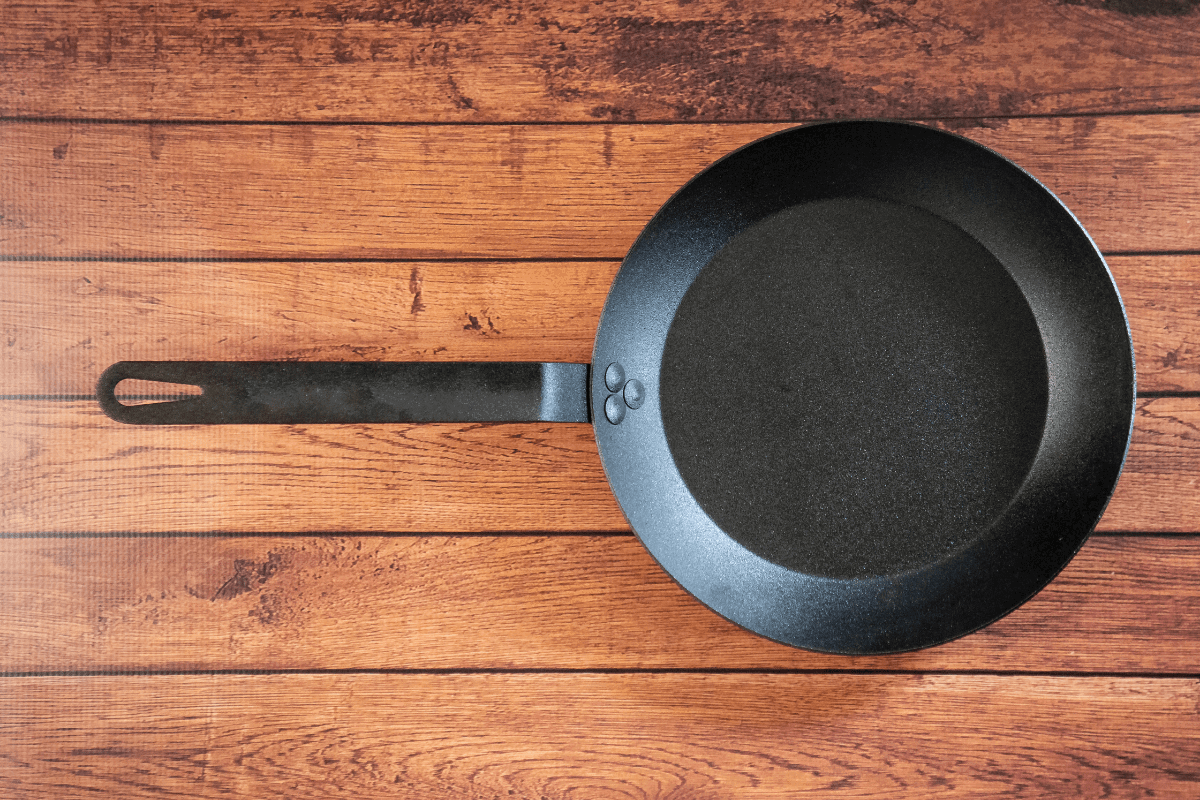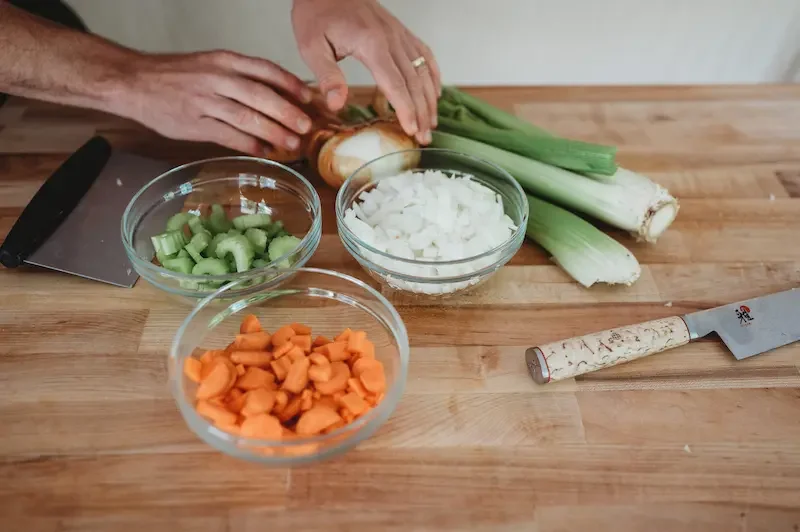When you don’t have potato starch available, corn starch is the best all-around substitute. It can fill in for almost any situation, and because it has a neutral flavor, it won’t mess up your recipe.
Other great alternatives are particularly good for baking, frying, or thickening liquids. Like soups, sauces, and stews. So, if you’re after the absolute best results, pick a substitute with culinary strengths that match your cooking situation.
Here are 7 potato starch substitutes that are easy to find and one you can make yourself. Some are excellent gluten-free flours for baked goods, and others are better for creating a light, crisp crust on fried foods. Read on to find the most suitable potato starch alternative for you.
In This Article
1. Cornstarch

Cornstarch is made from the endosperm of corn kernels. That’s just the “meaty” part beneath the skin of each kernel that contains a high amount of starch. But, all you really need to know is that cornstarch is probably the best all-around substitute for potato starch.
Some substitutes are particularly good at baking or frying or thickening. But cornstarch can fill in, in just about any situation, and its neutral flavor won’t mess up your recipes.
Its most common use is for thickening soups, sauces, and puddings. This is easy to do by creating a slurry with water and then whisking it into any simmering liquid.
When used for baking or frying, cornstarch can be used in the same quantities as potato starch. It produces similar results across the board and will keep your recipes gluten-free. Plus, you should be able to easily find cornstarch in just about any grocery store.
2. Rice Flour

Rice flour comes in three different varieties: white, brown, and glutinous (a.k.a sweet). All three are made from finely ground rice. Glutinous rice flour behaves very differently than the rest and is not a great potato starch substitute.
White and brown rice flour can be used for similar applications. However, it’s the white option that’s going to act the most like and replace potato starch.
This is another good all-around substitute. Much like potato starch, it creates a light and crispy exterior when fried. And can be used as a gluten-free flour alternative in baked goods.
When it comes to thickening liquids, you can even sprinkle rice flour directly into your simmering liquid. No need for the extra step of making a slurry first.

Make Your Own: If you’re really in a pinch, simply throw a handful of plain dry rice into a blender or spice grinder to make your own flour.
3. Tapioca Starch

Tapioca is made from a root vegetable called cassava. And yes, you can substitute tapioca starch for potato starch.
It’s a staple vegetable throughout South America and is often even prepared in similar ways to a potato. Tapioca starch (also called tapioca flour) is another good all-around substitute that can be used for thickening, frying, and baking.
Tapioca starch has a very neutral flavor, but it does have a slight sweetness to it which you don’t really find in potato starch.
That makes tapioca starch a good replacement in baked goods in place of its root relative. It’s my go to starch when it comes to thickening fruit pie fillings.
4. Arrowroot Starch

Arrowroot starch is another alternative similar to tapioca, made from a starchy root vegetable. It’s a great choice that will keep your recipe gluten and grain-free.
It can be easily substituted in equal amounts for potato starch when baking or frying. But, when it comes to thickening you’ll generally want to use about ½ as much you would with potato or cornstarch.
Arrowroot is a powerful thickener and you can end up with a goopy, unappetizing texture if you use too much.
5. Kuzu Starch

Kuzu starch (also called kudzu or Japanese arrowroot) is made from the roots of the kudzu vine. The plant is native to China and Japan but is an invasive species here in the states. If you live in the South, you’ve probably seen it covering entire hills and trees lining the highways.
Anyway, aside from it being an interesting plant, it also happens to be an excellent potato starch substitute. Kuzu starch is especially useful as a thickener.
Potato starch has the tendency to turn liquids cloudy, while kuzu stays clear when cooked. It also does a better job staying together without separating even after being cooked for long periods.
Dry kuzu starch tends to be more lumpy than the other options, so it’s not the best alternative when it comes to baking and frying.
6. All-Purpose Flour

If you’re not concerned about consuming gluten, then good old wheat flour is an excellent and versatile substitute.
All-purpose flour can be used in just about any application that potato starch can. But, it acts much differently in most recipes.
When thickening sauces, flour should be cooked with fat to avoid lumps and a raw flour taste. It’s great for frying, but will have a harder and denser crunch. And the gluten content makes baking with it an entirely different experience.
7. Matzo Meal

Matzo meal is simply made from ground up matzo crackers, a wheat-based flatbread. This option should generally be reserved for desperate times when none of the other options are available.
Matzo meal is more like a fine bread crumb than a flour or starch. It will work to thicken soups, and it actually works quite well as a coating for fried foods.
But, for baked goods and sauces that you want to actually be smooth, go ahead and stop cooking and ask a neighbor for an alternative.
Consider This Before Picking An Alternative
There are several great potato starch alternatives that can be substituted in equal amounts and act almost the same when cooked. But, you should definitely familiarize yourself with any new ingredient before adding it to your recipe.
Cornstarch, rice flour, tapioca starch, and arrowroot powder are all great options that are relatively easy to substitute and won’t have any drastically different effects in most recipes.
Kuzu starch is a great option to add to your culinary arsenal for thickening, but isn’t a great substitute in most other areas.
Lastly, wheat flour is incredibly versatile, but because it behaves so differently than potato starch it’s not easy to directly substitute in most recipes.
For more ingredient substitutes and culinary principles take advantage of our wealth of knowledge in the Kitchen Ambition Cooking School.
FAQ
Is Cornstarch And Potato Starch The Same Thing?
Cornstarch and potato starch are made from two very different plants. But, when it comes to cooking with them, they are fairly similar and can be used interchangeably in many recipes.
Can I Use Flour Instead Of Potato Starch?
Flour can be used as a potato starch substitute, but it behaves very differently when cooked and is not gluten-free. For that reason, you’ll likely have to make other adjustments to your recipe.
Can You Substitute Tapioca Starch For Potato Starch?
Tapioca starch is an excellent potato starch substitute. It can be used in a very similar manner to potato starch, but it does have a slightly sweet flavor.







